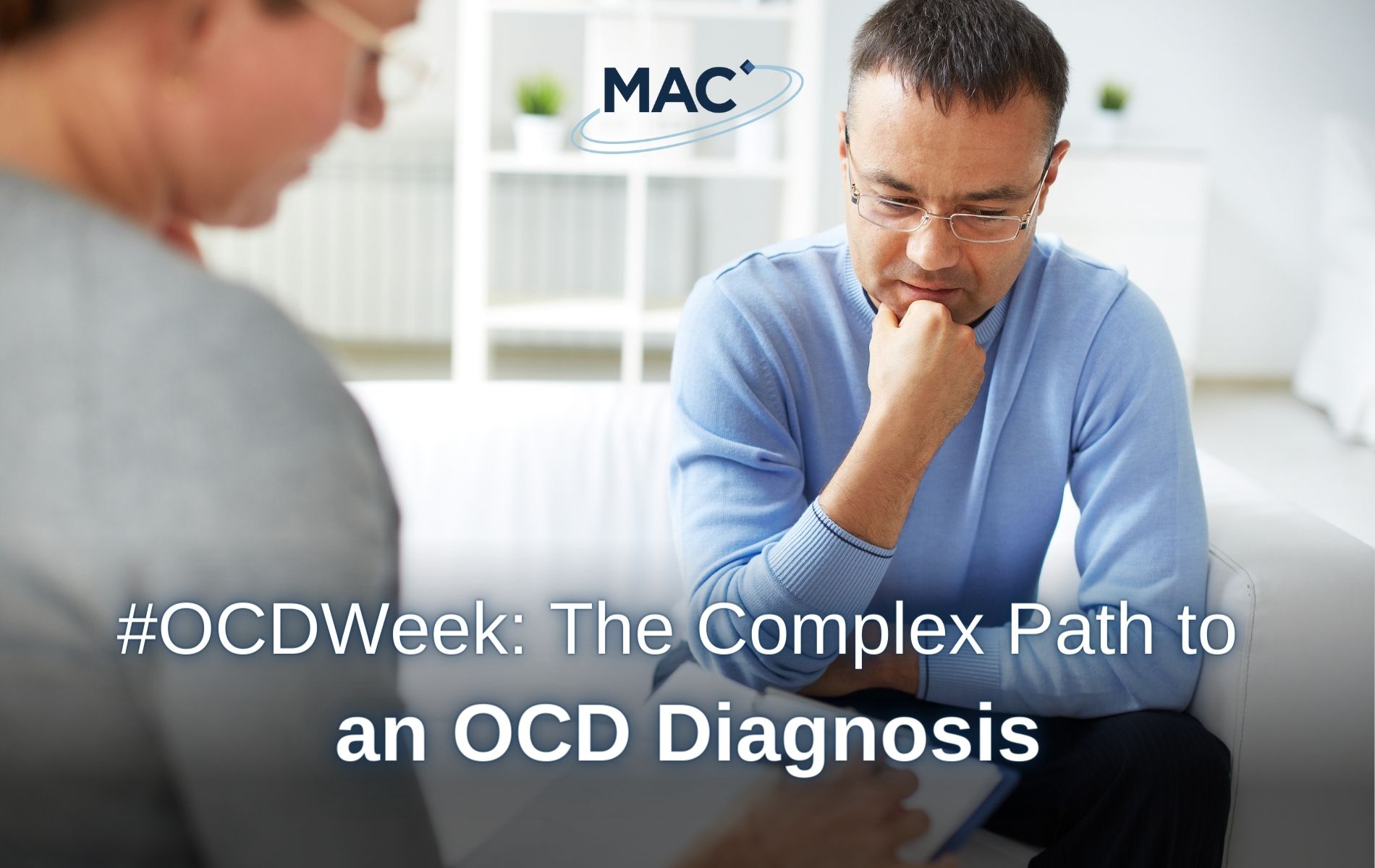For this year’s OCD Awareness Week, we’re raising awareness of the challenges that people living with the condition can face. One of the many challenges is the path to receiving a diagnosis, which requires patience and perseverance.
While the journey to diagnosis may have its complexities, it’s essential to recognise that healthcare professionals and systems are doing their best to provide comprehensive care to patients.
Although Obsessive Compulsive Disorder (OCD) affects an estimated three-quarters of a million people in the UK1, only a fraction of those living with the condition will receive a formal diagnosis of OCD.
OCD is a mental health condition that causes intrusive and distressing thoughts, and repetitive behaviours or mental actions (known as compulsions), which are performed as a means of temporarily reducing the anxiety that intrusive thoughts can cause.
Healthcare providers, including general practitioners (GPs) and mental health specialists, play a critical role in the diagnosis of OCD. However, diagnosing OCD can be complex because its symptoms can mimic those of other mental health conditions or even physical illnesses. Healthcare professionals must carefully evaluate a patient’s symptoms, history, and personal experiences to make an accurate diagnosis.
Generally, a diagnosis of OCD might be given if symptoms consume more than an hour each and every day3.
While seeking help is a crucial step toward an OCD diagnosis, individuals may face barriers in accessing healthcare services. These barriers can include a lack of awareness about mental health conditions, stigma surrounding mental illness, or difficulty navigating the healthcare system. However, it’s essential to acknowledge that healthcare systems strive to provide accessible care to all individuals.
Another issue that those living with OCD may encounter when seeking a diagnosis is the possibility of being misdiagnosed. There are several other conditions that may overlap with OCD or have other similarities. These include other mental health conditions such as body dysmorphic disorder and health anxiety (hypochondriasis) or other conditions like Tourette’s syndrome and some forms of autism, like Asperger’s syndrome4.
Some research has suggested that only 35-40% of individuals with OCD seek treatment, and fewer than 10% receive evidence-based treatment5. This could be due to people living with OCD fearing judgement due to the stigma surrounding the condition and fear of sharing distressing intrusive thoughts.
Given the complexity of diagnosing OCD, persistence is often key. Individuals who suspect they may have OCD should continue to communicate their symptoms and concerns with healthcare providers. Sharing their experiences openly can help guide the diagnostic process and lead to appropriate treatment and support.
Did you know? You don’t need to have a formal diagnosis of OCD to be eligible for MAC Clinical Research’s OCD clinical trial.
The trial is investigating a medication that is thought to target a different signalling pathway in the brain to current OCD treatments, which may help to control obsessive or compulsive behaviours. With your participation, you may be able to contribute to scientific research, which could lead to a new medicine to help people living with OCD.
The trial is taking place at MAC clinics in Lancashire, Greater Manchester, Merseyside, South Staffordshire, South Yorkshire, Teesside, and West Yorkshire.
To be eligible, you must:
- Be aged between 18 and 65 years old.
- Have had OCD or OCD symptoms for at least 1 year that is affecting your everyday life.
- Feel that your current OCD medication (antidepressant) is not fully working.
Eligible participants will receive up to £490 for their time and commitment to the study, along with reasonable travel costs. If the treatment works, you may be allowed to continue taking it (known as an open-label extension) for up to 48 weeks. For more information on how you can get involved, visit our OCD Research page.
1 NHS Inform – Obsessive compulsive disorder (OCD)
2 Yale School of Medicine – Frequently asked questions about OCD
3 OCD UK – Diagnosing OCD
4 Royal College of Psychiatrics – Obsessive-compulsive disorder (OCD)
5 Behaviour Therapy – Characteristics of individuals seeking treatment for obsessive-compulsive disorder








